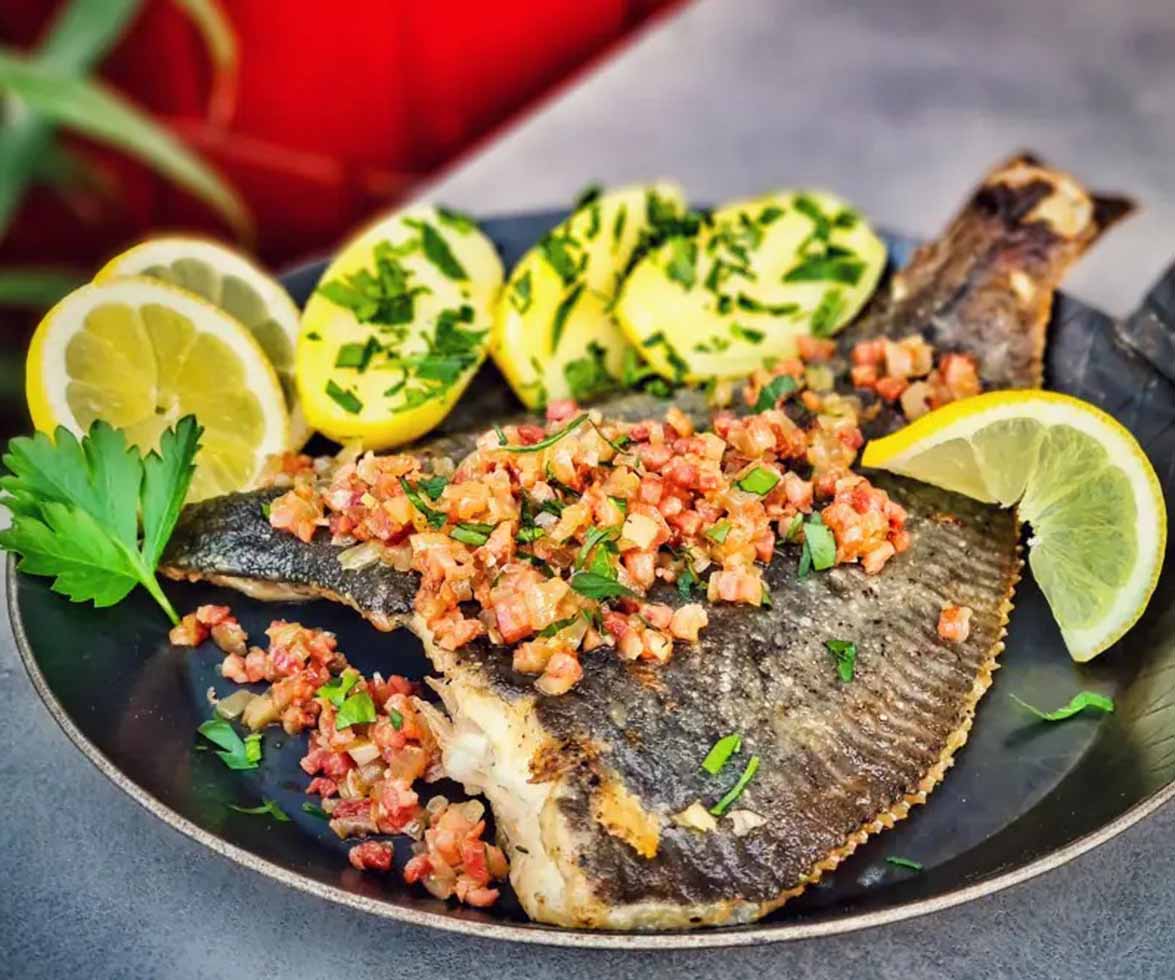The air hits differently in Bremerhaven. There’s salt in it, yes, but also something else—a kind of quiet conviction, a sense that this city knows who it is and doesn’t try to be anything else. Ships groan softly in the harbor. The wind flutters flags in a dozen languages. Gulls circle above the masts, and somewhere nearby, fish are sizzling on a grill. I hadn’t even left the train station before I started craving seafood.
Bremerhaven, nestled on Germany’s North Sea coast, is a city that wears its maritime identity with quiet pride. It’s not flashy, not oversold—just honest. Everything is tied to the sea, from the history and architecture to the food that draws people here with surprising intensity. Over a few days, I walked the harbor paths, followed the scent of grilled herring through narrow alleyways, talked to fishermen, and chased the wind across piers. And I ate—oh, I ate.
1. Natusch Fischereihafen-Restaurant – The Old Soul of Bremerhaven
It began with a tip from a ship captain I met outside the German Maritime Museum. He leaned in close, as though whispering treasure, and said, “If you want the real taste of Bremerhaven, you go to Natusch.”
Located in the heart of the historic Fischereihafen district, Natusch Fischereihafen-Restaurant feels like stepping into an old maritime novel. Heavy wood beams, thick rope decorations, brass lamps—all echoing a seafaring past. But it’s not a museum. It’s alive, and the kitchen is its beating heart.
I sat by a window overlooking the docks. An older waiter in a starched shirt placed a crisp linen menu before me and recommended the Finkenwerder Scholle—a North Sea plaice, pan-fried in butter and served with crispy bacon and onions. The fish had that perfect, just-caught sweetness. The bacon added warmth without overpowering the delicate flavor. I paired it with a dry Riesling and found myself slowing down to appreciate every bite.
Later, I wandered through the harbor outside, still tasting the salt and butter on my lips, watching fishing boats dock with crates full of silver fish, like something out of another century.
Address: Am Schaufenster 6, 27572 Bremerhaven
Reservation: Available via OpenTable and Bookatable.de—strongly recommended on weekends.
2. Fischrestaurant Giese – Where Locals Eat in Silence
Giese is tucked away, almost too modest for its own good. I found it not through a travel guide, but because I got lost. A blue awning, a chalkboard with the day’s catch, and the unmistakable smell of grilled mackerel pulled me in.
Inside, it’s quiet—not because it’s empty, but because the food demands respect. I took a table by the wall, surrounded by fishermen in worn jackets and older couples who looked like they’d been coming here for decades. A waitress with a kind smile brought me a bowl of Bremerhaven Fischsuppe. Thick, savory, swimming with chunks of cod, shrimp, and salmon, all tied together with a tomato base that hinted at bay leaves and old recipes.

Then came the Matjesfilet—young herring cured in a brine so light and clean it almost sang. It was served cold, with onions and apples, and something about it made me think of sea air and spring. Every bite was familiar and new, like something my grandmother might have made if she’d lived by the sea.
No Wi-Fi here. No background music. Just the clink of forks and the soft murmur of German spoken with a northern drawl.
Address: Bülkenstraße 14, 27572 Bremerhaven
Reservation Tip: Call ahead (+49 471 123456) or check Resmio.com, though walk-ins are welcome most afternoons.
3. Der Fisch 2000 – Modern Counter, Timeless Fish
It’s easy to overlook Der Fisch 2000. It’s a fishmonger first, restaurant second. The seating is limited—mostly stools at a long counter, bright lighting, no frills. But I had been told by more than one local: “Best grilled fish in the city.”
I went just after noon, when the line was starting to wrap around the side of the building. Inside, the pace was brisk—orders called, fish flipped, steam rising from trays. I chose a Dorade Royale, grilled whole, with lemon and herbs. I watched as it sizzled on the flat-top, seasoned only with sea salt, brushed lightly with oil.
There are no formal place settings, just trays and good napkins. Yet it was perfect. The fish was tender, each flake separate from the next, and the skin had that satisfying crispness only a proper grill can offer. It came with potato salad—vinegary, firm, and intentionally simple.
You don’t linger here. You eat, nod to the cook, and move on. But it stays with you, like a memory of a song you can’t stop humming.
Address: Klußmannstraße 7, 27570 Bremerhaven
Reservation: None needed—walk-in only. Peak time is 12–2 PM. They also list daily specials on Lieferando.de, though dine-in is the best way to experience it.
4. Seefischkochstudio – Cooking School Turned Culinary Experience
Not quite a restaurant, not quite a school—Seefischkochstudio is something in between, and entirely worth seeking out. It began as a place for professional chefs to learn how to prepare fish properly. Now, it opens its doors to curious visitors looking for more than just a meal.
The experience starts with a demonstration. I joined a small group in a sleek open kitchen. A chef in white showed us how to filet a cod properly, how to sear it to perfection, how to prepare classic North German sides like horseradish cream and beetroot salad. Then we sat down to eat the results.

The main course was Kabeljau mit Senfsauce—cod with mustard sauce. The tang of the mustard didn’t overpower the fish; it elevated it. Alongside was a carrot and potato mash, subtly spiced, designed to complement rather than compete. Dessert was a simple berry compote, not seafood, but fitting—a nod to seasonality and local flavors.
This was the most hands-on of my meals in Bremerhaven, and perhaps the most memorable. You leave not just fed, but changed. You know more. You taste more.
Address: Am Schaufenster 5, 27572 Bremerhaven
Booking: Required. Available through their website and on Erlebniskochen.de.
5. Fisch 34 – A Maritime Secret Near the Dockyards
It was evening when I found Fisch 34. I’d been wandering the industrial side of the port, where cranes cut silhouettes against a pink-and-grey sky, and the sound of seagulls echoed off steel containers. Hidden behind a modest warehouse, this small eatery looked unremarkable. A neon fish on the sign. Wooden benches outside. But the smell? Worth writing poetry about.
Inside, it was warm and unpretentious. The menu offered only a handful of dishes, but each one handwritten and proudly marked “täglich frisch” (fresh daily). I ordered the Scholle Müllerin Art—pan-fried sole in butter, served with parsley potatoes and lemon. It arrived in minutes, still steaming, the butter browned just to the edge of nutty.
Everything about the place felt grounded. A couple at the next table shared stories with the cook, who doubled as the owner. A teenager walked in with his grandfather, both nodding silently at the menu before settling on their usual.
There’s something profoundly comforting in knowing you’ve found a place not designed to impress tourists, but to feed those who know fish best.
Address: Fischkai 34, 27572 Bremerhaven
Reservations: None offered. Go early—there are only a few tables. Cash preferred. Listings also appear on LocalEats.de occasionally.
6. The Pleasure of Slowing Down
Walking back toward the city center each evening, I noticed how the light changed in Bremerhaven. It’s not like southern Europe, where golden hour feels like a painter’s flourish. Here, it’s softer, more reserved. Boats shimmer quietly. The harbor lights blink to life one by one.
Eating seafood here isn’t about extravagance. It’s about lineage, about sea-to-plate honesty, about recipes born of necessity that evolved into something sublime. It’s about weathered hands and old knives, about smoke and salt and time.
Between meals, I found myself lingering in small museums, talking with local vendors, watching fishing nets get mended by hand. And every time I stepped into another restaurant, I felt a little more like part of the tide—moving, changing, always coming back to the sea.
